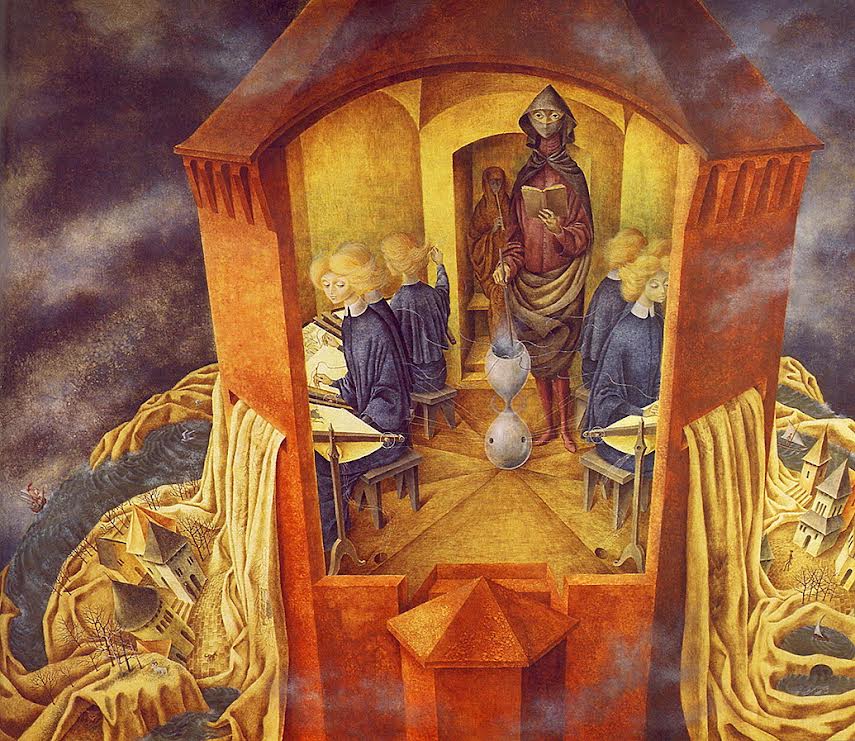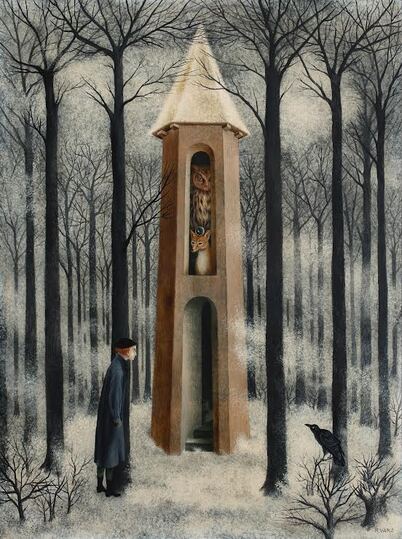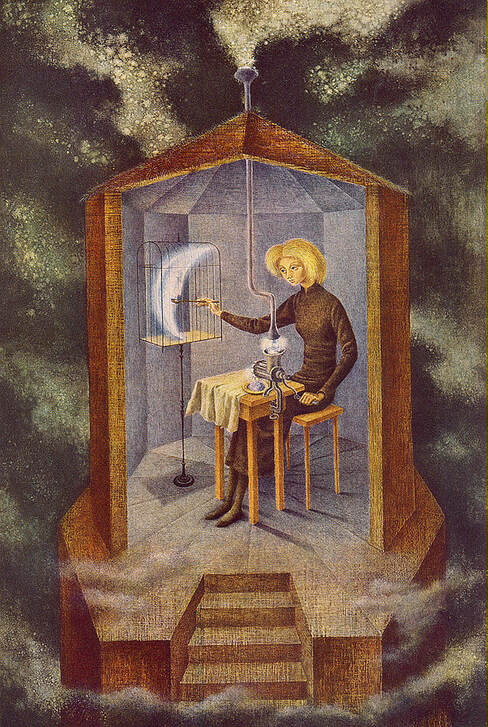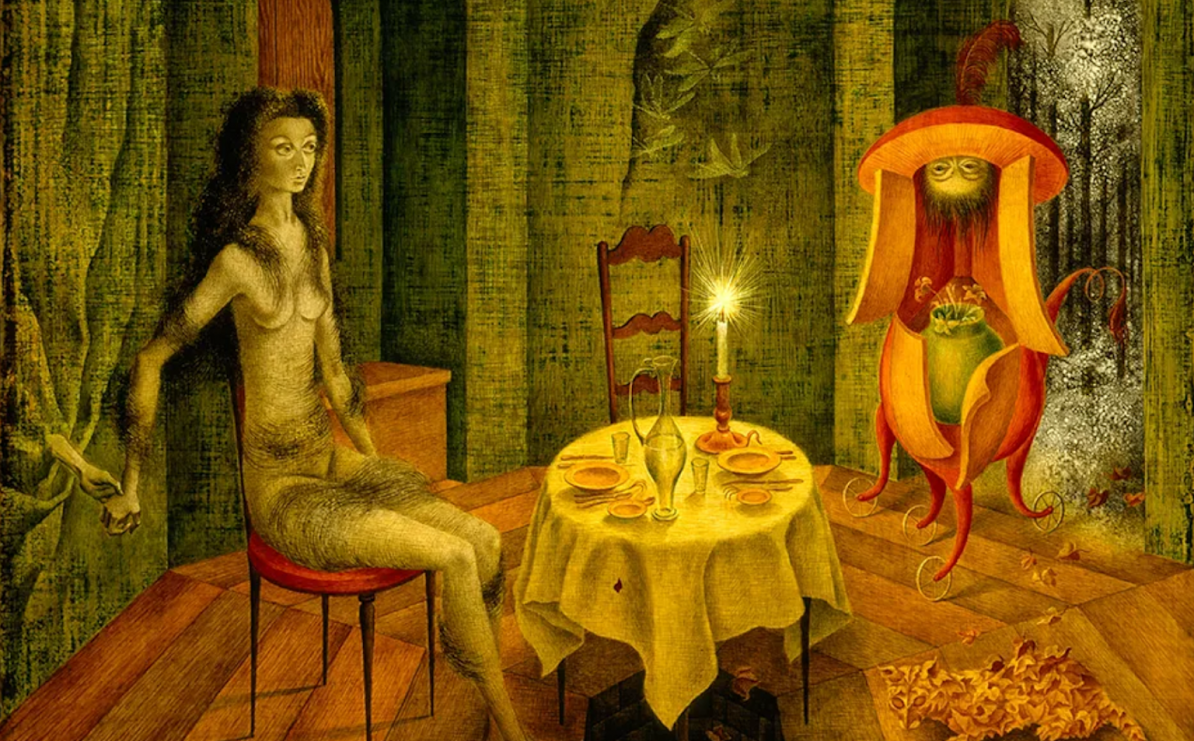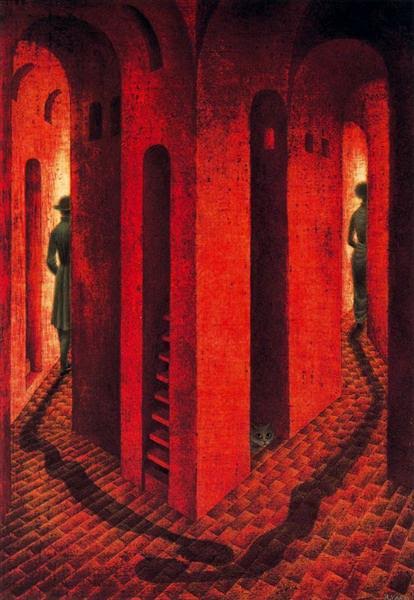|
Priest and his Scriveners In a tower that rose so high above the earth that it penetrated the clouds, the man who called himself Priest dominated the girls with his authority. A humorless type, he understood basic symbolism and allegory. In other words, he reveled in what a tower represented. His assistant, a shrouded nameless poetess, kissed his feet when he demanded. She pressed the girls’ rebellious faces to his calfskin boots. In their uniforms of anonymity, the girls sat at desks, backs to each other, from sunrise until sunset, although the windows were placed far above their heads to provide light but not distraction. Priest always read from his own Collected Poems, never poetry by other poets. When one naïve girl questioned him about Alice and her tumble into a strange land, he insisted there was no such story and gave her three poems to memorize before morning. Priest continued to read in his booming, self-pleased cadence. He beamed at his metaphors and images; even the verb tenses brought an orgasmic sheen to his face. He might have seen one girl occasionally turning and winking at another if he had paid attention. Priest attached strings from his pages to the girls’ pens. The scrolls they wrote on flowed from the tower. The copy work of these girls was intended to produce massive amounts of Priest manuscript, enough—in time—to cover the earth. By the time Priest checked on their work, it was too late. He thought to himself that he should have hired boys as scriveners. Girls were unreliable. Into the Poem The poet carried a notebook in their coat pocket, taking it out whenever their heart leapt at a bluejay’s feather. They scribbled frantically when a deer and fox nudged noses. Pressed on the issue, they couldn’t remember the ages of their children. When their partner disappeared, they didn’t notice until the cat pawed their face at 5AM. But they searched for the cricket singing behind the armoire and then wrote a villanelle. One dreary December night, they responded to a knock and muffled voice at the door. They looked left and right but saw nobody. Then they heard the word repeated. Glancing down to see if someone had left a letter or gift, they saw the raven. At least they assumed it was a raven because poets love ravens. If it were a crow, they didn’t want to know. The bird nodded its head toward the path into the woods, as if the poet should follow. Being ambitious, they let the raven lead them into the wintry woodland with its elongated skeletal trees. They could see the tower ahead but didn’t realize until too late they had entered the panopticon and the animals they had stalked were now observing them. Star Porridge Folks noticed it was blacker at night now than before. Instead of going out, they stayed in and retrained their focus on what was inside their building. Nobody knew the woman who lived in the penthouse--the super’s sarcastic name for the garret just under the roof of the high-rise. Some said her albino-like skin came from living parallel to the stars, where it was always night. Others said she was the ghost of an anorexic Mother Goose. A few said she was Finnish. Down on the second floor, they argued over whether she had a job or a trust fund. Someone mentioned that the garret might be Section 8. With coaching from the adults, two kids from that floor channeled Harriet the Spy. When they knocked, she cracked the door an inch. The twelve-year-old pushed it in and entered, dragging the younger child behind. He didn’t menace her. Her skin was so translucent an outline of her muscle-less bones was visible underneath. The room’s geometry spun, and the children sat on the floor to acclimate. She didn’t seem surprised or irritated to see them, but carried on as though they weren’t there, heading back to the bowl of luminescent porridge on the table. A tube connected to the bowl vacuumed the sky through the roof. A bird cage hung next to the table, and the woman hand-fed spoonfuls to the bird. The ten-year-old suddenly recognized the captive she fed—no canary, but the slivery, shivery moon—and screamed. Silver rays blanketed them as they ran out the door and down the fire stairs. That night the streets were louder as nearby pubs and clubs were lit by an otherworldly light from the second floor, and the people partied now that the black nights were over. Waiting for the Handsome Prince: A Farce (Of Course) Some girls left a glove or handkerchief, hoping to obligate a gentleman to return it. Eleonora liked to think she was different. She dropped a pump knowing he would imagine her barefoot and helpless. She remembered the velvet of his broad chest, jeweled medallion clanking, felt parts of her responding. Her new friend, Fairy Godfather, helped her prepare for Handsome Prince’s visit, adding to her pretty table setting an inexhaustible carafe and a trick candle, while assuring Eleonora they were traditional heirlooms with magical powers. Before he departed with an unnecessary hug, he reminded her what would happen if the spell were broken. All she needed to achieve the spell’s fulfillment was one kiss from Handsome Prince. Eleonora waited at the table for Handsome Prince all day. Then all night and the next day. She examined the events of the ball repeatedly. What went wrong? Was she too assertive? Too quiet? Did he prefer juicier curves or richer daddies? She tried to drink the water, but it was ensconced inside the glass, unattainable. She tried to rise, but the broken spell had already begun to claim its reward. The transformation into feline had begun. She was locked in place, the fur growing, even as the spinster cat had begun to dissolve into the woods. Just as the pitying fairies arrived to spirit her off beyond the veil, the now-unmasked Fairy Godfather appeared in his pumpkin, his goblin face taunting her. The Unsilencing of Doña Juana Doña Juana saw his back so often she didn’t remember if his beard was full or sculpted. Were his eyes brown or tan-flecked green? Too late now. He hurried, his justacorps’ silk lining swishing. She hauled her numb heart back to her windowless room. If anyone had seen her, she moved with the grace of a nun, rolling silently under her habit. She would be alone in her room, a guttering candle for company. She tried to read her prayerbook, but her eyes hurt in the dim light, shadows flickering on the walls. How would he know if she disobeyed? With its foot-thick door and brass locks, the room at hall’s end looked secure. Thoughts of him riding into the moonlight on his black stallion with the night air on his face rose in her like a spring of bile. Why was she forbidden from the locked room? After an hour, she found the keys on the ring and turned them in the correct order. Inside the room, women dressed in her identical nightdress were posed in a row of cells. The women did not move nor blink. They were silent. Doña Juana stripped off her gown and screamed. The piercing cry woke the women from their trances. They too ripped off their white night clothes, talking as they walked out into the balmy night in their bloomers and chemises. Luanne Castle Luanne Castle’s award-winning full-length poetry collections are Rooted and Winged (Finishing Line 2022) and Doll God (Kelsay 2015). Her chapbooks are Our Wolves (Alien Buddha 2023) and Kin Types (Finishing Line 2017), a finalist for the Eric Hoffer Award. Luanne’s Pushcart and Best of the Net-nominated poetry and prose have appeared or are forthcoming in The Bending Genres, Dribble Drabble Review, Copper Nickel, and other journals. She lives with five cats in Arizona along a wash that wildlife use as a thoroughfare. During the pandemic, she began art journaling and now spends happy time with paints, glues, and collage papers.
3 Comments
Roberta Eaton Cheadle
8/14/2023 10:29:18 am
Five intriguing and unusual stories.
Reply
8/14/2023 02:36:44 pm
Well done, Luanne. Your stories had the right snap to them. They were all enjoyable.
Reply
Wilma Kahn
8/16/2023 02:02:38 pm
So rich and evocative! 4Thanks for sharing them.
Reply
Your comment will be posted after it is approved.
Leave a Reply. |
The Ekphrastic Review
COOKIES/PRIVACY
This site uses cookies to deliver your best navigation experience this time and next. Continuing here means you consent to cookies. Thank you. Join us on Facebook:
July 2024
|
